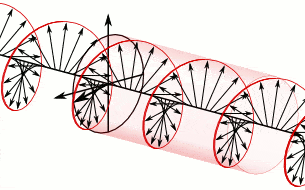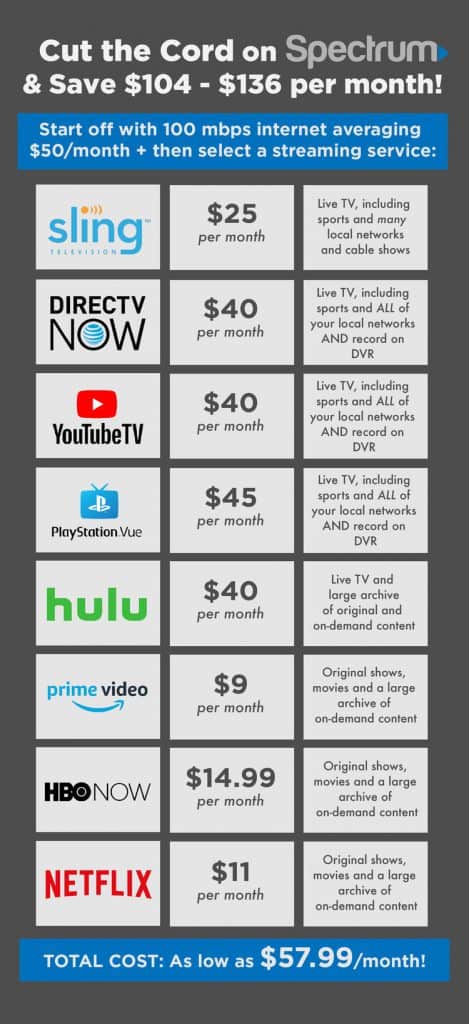
Circular polarization (Image courtesy of: Dave3457)
German researchers are testing a new way of transferring data over optical fiber using a new laser polarization method that could boost the capacity of a single strand of fiber from 25 gigabits per second to as fast as 240 gigabits per second, while greatly reducing power consumption and heat.
The technique relies on oscillating polarization in the light beam instead of more traditional methods that rely on light intensity to transmit data. Current methods differentiate between digital “1s” and “0s” by using different light intensity.
“Normally, you make the throughput faster by pumping the laser harder, which automatically means you consume a lot of power and produce a lot of heat,” said Nils Gerhardt, chair of photonics and terahertz technology at Ruhr-University Bochum in Germany. “Which is actually a big problem for today’s server farms. But the bandwidth in our concept does not depend on the power consumption. We have the same bandwidth even [at] low currents.”
Using lower current means a less expensive power bill, particularly to remove excess heat generated from the high intensity beams of light sent across fiber cables in places like data centers. The new technique encodes a “1” as a burst of circularly polarized light that corkscrews to the left, while a “0” is represented by a burst of the same polarized light, only it corkscrews to the right. Right now, the technology is at the “proof of concept” stage in the lab, but the idea of light spinning has been around since at least 1997. The goal is to efficiently boost transmission capacity across optical fiber strands, which currently tops out at between 40-50 gigabits per second.
One of the benefits of optical fiber in fiber to the home applications is that it is considered almost infinitely upgradable, depending on laser transmission technology improvements. Currently, multiple strands of fiber are used in dedicated, very high-speed applications. If a provider uses all of its fiber strand capacity, it may have to divert excess traffic or lay down more fiber. Gerhardt’s technology could eventually expand existing fiber strand capacity by five times or more if it proves workable. But Gerhardt warns there is much research to complete, and he envisions the technology would be most useful initially in server farms and data centers, where cable lengths are shorter and heat concerns are greater. The technology would have to prove itself before being considered for internet backbone applications.
Competing technologies that could come to market before Gerhardt’s method include “mode-locked semiconductor laser diodes” and “quantum cascade lasers,” but neither have been successful much above 100 gigabits per second.


 Subscribe
Subscribe



 Population growth in South Carolina has opened up new opportunities for Charter Communications to extend cable service into areas that were formerly too unprofitable to serve. On Tuesday, the company announced a $1 million construction project to bring Spectrum cable broadband service to the town of Lamar in Darlington County.
Population growth in South Carolina has opened up new opportunities for Charter Communications to extend cable service into areas that were formerly too unprofitable to serve. On Tuesday, the company announced a $1 million construction project to bring Spectrum cable broadband service to the town of Lamar in Darlington County. “Internet is obviously a necessity, it’s not a luxury anymore,” said Ben Breazeale, senior director of government affairs for Charter Communications. “Rural communities all over our country are struggling to try to retain young people and internet is a must. Access to our communications systems is a must for our youth.”
“Internet is obviously a necessity, it’s not a luxury anymore,” said Ben Breazeale, senior director of government affairs for Charter Communications. “Rural communities all over our country are struggling to try to retain young people and internet is a must. Access to our communications systems is a must for our youth.”